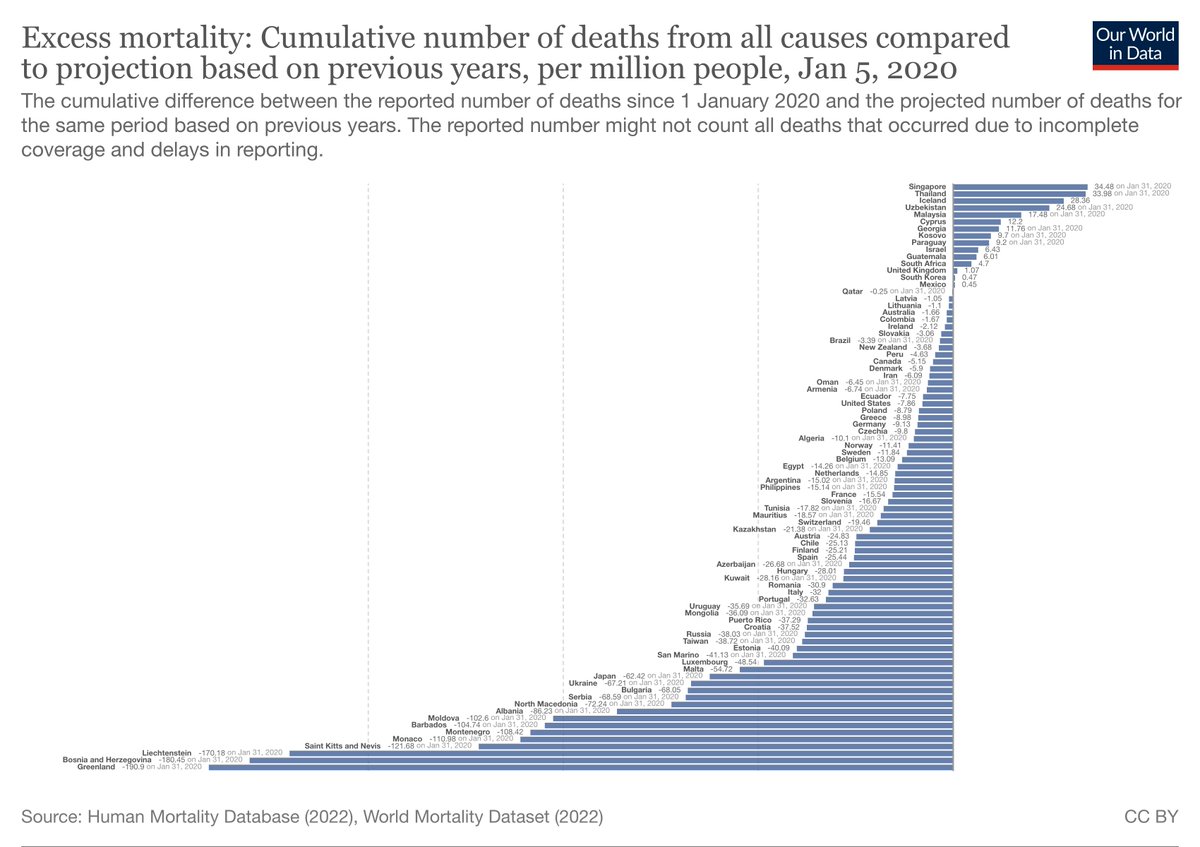Fortunately I’m a rocket scientist, so here the public health decision every state worldwide now faces, broken down to its essence. Do you want to live with a SARS virus in your much shortened, disease-ridden lives or would you rather not?
That’s the only real question here.
That’s the only real question here.
https://twitter.com/_ppmv/status/1669802037905588225

2. Previous iterations of this deep insight. I’m not satisfied with “explode” here because while true on an intergenerational scale, explosive typically denotes a process faster than multiple years - as it will take - to most people. Should say “increase.”
https://twitter.com/_ppmv/status/1636034906999357441
3. You’d think whether we want to live with a SARS and smallpox-like virus (monkeypox ~ variola virus) is at the heart of the German national security policy debate #Sicherheitsstrategie? Cute.
In reality, as @RikeFranke argued, German millennials are incredibly bad at strategy.
In reality, as @RikeFranke argued, German millennials are incredibly bad at strategy.
https://twitter.com/_ppmv/status/1669396812673810432
@RikeFranke Dr. Franke assessment of the pandemic is wrong (sorry—I may have pointed it out previously; just need to add it if I share); otherwise a perceptive, timely 2021 essay. warontherocks.com/2021/05/a-mill… 



@RikeFranke 4. Crash course for political scientists unfamiliar with SARS/MERS-CoV/OPV/hMPXV pathogenesis. - Read for example China CDC's analysis of expected future genetic recombination in SARS-CoV-2 and I'd add, Mpox.


https://twitter.com/_ppmv/status/1646593667040178176
https://twitter.com/_ppmv/status/1622552666374082562
https://twitter.com/RikeFranke/status/1670046545163558912


5. Slightly sharper version of #2 above, explaining mechanisms (=relevant to scientists or all who want to understand why a pathogen behaves as it does).
https://twitter.com/_ppmv/status/1633851580083576834
6. Now is a good time to ruin a fun polemic tweet by overexplaining it. - No, we're here to learn and Germany offers splendid lessons on what NOT to do in a SARS pandemic. To start, to do any worse than Germany over the past 12 months is hard if one tried. 
https://twitter.com/_ppmv/status/1628498769917489153

7. These are all countries available in the database. Many stopped reporting or are wildly unreliable; can't work with data we don't have. For example Russia must have done worse than Germany over the past 12 months but it's reporting is likely incomplete. 
https://twitter.com/_ppmv/status/1628498769917489153

8. Please correct if wrong, but I read Germany had 96,077 excess deaths in 343 days = 280 excess deaths *per day* in the past 12 months (19 June 2022 to 28 May 2023). Imagine two Airbus A320s à 140 passengers crashing every day.
Zero journalists noticed. Wild. @berndulrich etc.?
Zero journalists noticed. Wild. @berndulrich etc.?

I may be terribly mistaken, but so far I'd propose we have a problem here and I don't think it's my middle school math.
9. For another, better graphic, compare the change in excess mortality over the past 12 months (left) with the change between 5 Jan 2020 and 9 April 2023, just before @WHO was forced to end the COVID-19 PHEIC.
WILD. We truly stare into the abyss here and it's looking back at us.


WILD. We truly stare into the abyss here and it's looking back at us.



@WHO 10. Concise by @mayer_iras. I also think this is how too many think. All that has big guns, platforms, and budgets attached to it is serious, hard power. Ideally EM or kinetic. Climate/health stuff are annoying distraction from the job.
I caricature, but.
I caricature, but.
https://twitter.com/mayer_iras/status/1670033180504498178
@WHO @mayer_iras 11. We had 8,096 SARS-CoV-1 infections. Survivors had epigenetic changes 20 years later. Billions of SARS-CoV-2 survivors face the same.
We cannot explain how states came to face disaster unprepared without the hubris of their staff and political leaders.
We cannot explain how states came to face disaster unprepared without the hubris of their staff and political leaders.
https://twitter.com/_ppmv/status/1649068390470893570
@WHO @mayer_iras 12. Many criticize WHO, I think as projection. As educational turn, ask your students to advise DG @DrTedros, skilled public health diplomat. What advice should he give G7 world leaders?
We face a dilemma that deserves sustained, global attention. thx all
We face a dilemma that deserves sustained, global attention. thx all
https://twitter.com/RealCheckMarker/status/1663255026288951297
13. Some elements of solutions we already described in detail (IHR 2005, climate, precautionary principle for both). Others are missing.
Language pros, among others we need a catchier name for the alternative to the PP 👇
Language pros, among others we need a catchier name for the alternative to the PP 👇
https://twitter.com/_ppmv/status/1670131500396818434
• • •
Missing some Tweet in this thread? You can try to
force a refresh























